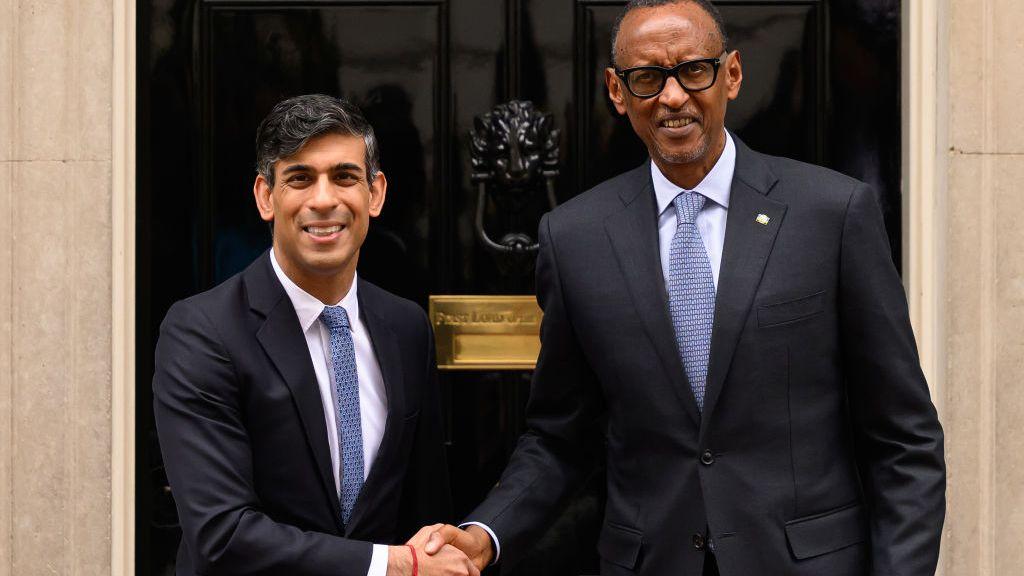Rwanda has said it will not have to repay the UK after a multimillion-pound migrant deal between the two countries was scrapped.
New British Prime Minister and Leader of the Labour Party Keir Starmer announced last weekend that the plan to deport asylum seekers to Rwanda was “dead and buried.”
The plan was devised by the previous Conservative government, which has paid £240 million ($310 million) to Rwanda since the plan was announced in 2022.
Legal challenges prevented the plan from ever getting off the ground and The UK on Monday expressed hope that some of the money from the deal could be recouped.
The next day, a Rwandan government spokesman told the country’s state television: “Let me be clear: repaying the money was never part of the agreement.”
Alain Mukuralinda said the agreement “did not provide” for the repayment of money and that the UK had approached Rwanda and asked for a partnership, which had been “discussed extensively”.
In January, after the program had been on hold for 21 months, Rwandan President Paul Kagame suggested that some of the money could be refunded if no asylum seekers were returned to the country.
But the Rwandan government later said there was “no obligation” to repay the UK.
Prime Minister Starmer called the plan an expensive “gimmick” after the Labour Party won an overwhelming majority in last week’s election.
His party has instead promised to set up a new border security command to tackle people-smuggling gangs.
Opposition to the bill also came from other quarters. The UK Supreme Court ruled the plan was unlawful, human rights groups called it cruel and draconian, while dissenters within the Conservative Party pushed for amendments that would better protect the plan from legal challenges.
According to the previous government, the plan was intended to discourage people from crossing the Channel in small boats.
Illegal migration is one of the biggest challenges facing the British government.
This year, more than 13,000 people have already crossed the Channel in small boats.
The figure is higher than the figures for the same period last year, although there is a decrease over 2023 as a whole compared to 2022.
You may also be interested in
Go to BBCAfrica.com for more news from the African continent.
follow us on twitter @BBCAfricaon Facebook on BBC Africa or on Instagram at bbcafrica
BBC Africa Podcasts

